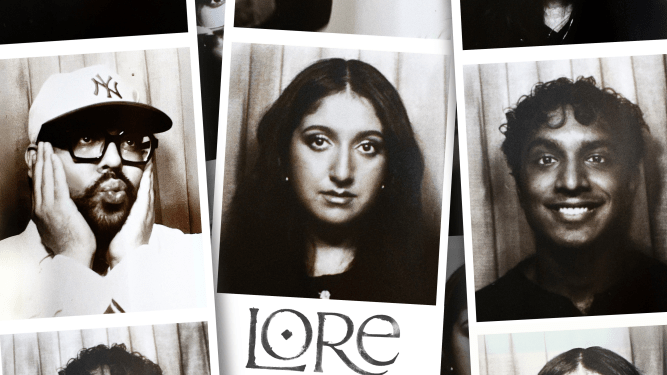Zehra Naqvi is 26 years old. She grew up as an obsessive fan girl in the 2010s, an era defined by Tumblr and Twitter. She would stay up all night breaking down Marvel movie release dates or analyzing the movements of One Direction members. This dedication helped her gain a collective 250,000 followers across the two platforms. She told TechCrunch that those early internet rabbit holes taught her how magical it felt to not just consume culture but to contribute to it. Her early interests led her to start a company at age 12, study art history at Columbia University, and later become a consumer investor at Headline Ventures. She also writes the popular consumer newsletter The Z List.
Now, she is starting something new called Lore, a search platform for people to research and discover internet obsessions. The company has already raised 1.1 million dollars in pre-seed funding and is set to emerge from stealth on October 6th.
A few months ago, she quit her job at Headline and decided to go back to the beginning. She recalled those early days of spiraling down internet rabbit holes and became dismayed when she realized that all the research she spent hours on was gone. She questioned how it was possible that she had spent well over 500 hours reading about Marvel movies over 17 years without a single platform tracking her consumption.
Lore provides the tools she wished had existed when fandom felt like home, before the internet became fractured and joyless. It lets consumers go down rabbit holes by providing links to fan theories, interpretations, cultural context, and easter eggs. According to Naqvi, the platform builds a personalized graph of obsessions, surfaces fandom updates in a feed, and gives users monthly reports about their current obsessions. She said you can zoom in on a single theory or zoom out to see how all your fandoms connect, describing it as playing with knowledge instead of just consuming it.
Naqvi is not sharing details on how the product works and declined to share any imagery, stating that Lore’s official hard launch is not until next year. She referred to the technology as the company’s special sauce.
She did say that rapid fandom consumption has not really changed online, even with new social media channels for users to interact on. She believes fandom is more fragmented than ever, and as people get older, finding time for joy spiraling becomes harder. As an investor, she realized that perhaps there did not need to be any more social tools for fans, noting there are plenty of places to talk. She added that much of social media aims for quick dopamine hits, doomscrolling, or feeds into what she calls iPad kid behavior. She believes the next version of social media will be quieter, more human, and built around passion and memory. She described Lore as an attempt to rebuild the Library of Alexandria for the fandom age.
Naqvi is a solo founder and has already made her first two hires, a marketing executive and an engineer. She described her fundraising process as obsessive. Village Global led the funding round with participation from Precursor Ventures. Charles Hudson, managing partner at Precursor Ventures, told TechCrunch that Lore is building the product fandoms have been waiting for. He envisions it as the essential app for fandoms to gather, share, and deepen their engagement with the things they love.
Naqvi said the new capital will be used to attract more users and continue product testing. She shared that they wrapped up an experiment with over 1,000 logins, nearly 24,000 searches, and a collective eight days of spiraling deep into obsessions. She said that level of engagement is insane and proves the need for what they are building.
Lore is not without competition. In the age of AI search engines, people have drawn comparisons to Perplexity, while others note it provides a similar function to Reddit or Wikipedia. However, Naqvi states that none of those spaces were built with fandom in mind. She described Lore as a lurker-first space that is interactive, colorful, and designed for play. She hopes Lore will restore some joy to the internet and create a place where obsession is not embarrassing but sacred. She concluded by saying consumer AI does not always have to be an agent that helps you shop or a glorified assistant or another social app. She believes there are many more inventive and joy-first ways to apply it, and Lore is proving that.

